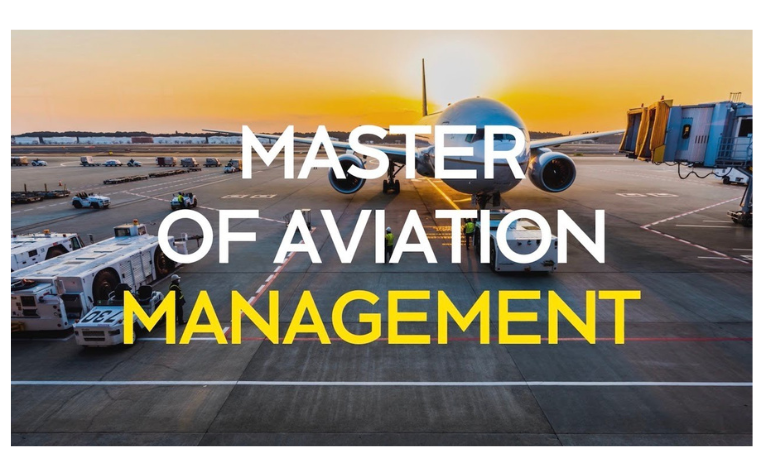
Aviation Management MS Degree: Elevate Your Aviation Career
Understanding the Master of Science in Aviation Management degree
Master of Science degrees in flight management focus on the theories and methods of running airline operations. Students learn subjects such as managing airports, running airlines, keeping passengers safe, and following rules and regulations. This school prepares students to deal with the unique problems in the aviation industry by teaching them these important subjects.
Additionally, finance, marketing, and logistics classes are often included in the curriculum, ensuring a complete education. Taking a multidisciplinary method ensures that graduates know a lot about aviation and important business skills. Since this happens, they become flexible professionals who can handle the complicated nature of the business.
Reasons for obtaining an MS in Aviation Management Career Advancement:
Indeed, job advancement is one of the top reasons to pursue an MS in aviation management. Advanced degrees are sought due to their interest since employers view them as a form of commitment to the field and a perfect understanding of how the business works.
Opportunities to network: Students can usually meet professionals in their field while they are learning by doing internships, attending workshops, and attending networking events. These connections can lead to more job chances and mentorship, which improves career prospects even more.
Specialized Information: The school teaches graduates specialized skills that make them stand out from their teammates. Knowing about aviation rules, safety procedures, and operational management gives students the skills they need to do well in their jobs.
Increased Earnings Potential: People with advanced degrees can usually get higher pay than people with only bachelor’s degrees. Gaining this cash advantage is a strong reason to get an MS in aviation management.
Important Classes in the Master’s Program in Aviation Management
For example, a master’s degree in aviation management usually includes a range of courses meant to give students a full idea of the business. Here are some examples of important courses:
Airport Management: This class covers the basics of running an airport, such as emergency procedures, keeping passengers safe, and excellent customer service. It teaches students how to make airports run more smoothly and improve passengers’ experiences.
Airline Operations: This course focuses on the business of running an airline. It covers topics like profit maximization, fleet management, and schedule planning. Teachers teach students about the complicated job of running an airplane.
Aircraft Safety: Safety is very important in the aircraft business. This course covers safety rules, risk management, and accident investigation so that students understand how important safety is in aviation.
Flight Law and Policy: People who work in flight need to know the laws and rules that apply to their jobs. This course covers laws, international rules, and policy issues that affect the aviation business.
Practical Knowledge and Work Experience
Many programs emphasize hands-on training, and students working toward an MS in aviation management often do internships. These opportunities let students use what they’ve learned in school in real-life situations.
Internships help students learn and give employers useful information about the company. Students can gain training in airport operations, airline management, and aviation consulting, as well as in a number of other areas. Additionally, internships frequently lead to job offers because companies value applicants with real-world experience.
Options for Graduates’ Careers
Aviation management MS graduates can go in a lot of different directions with their careers. Potential jobs include the following:
The manager of an airport is responsible for making sure that daily activities run smoothly, safely, and to the satisfaction of all customers.
Manager of airline operations, including scheduling, fleet operations, and income management, to get the best results.
Consulting as an aviation consultant means giving businesses and organizations expert help on how to run aircraft safely and in line with regulations.
Avionics Safety Officer: Ensure that aircraft companies adhere to safety rules and procedures.
Flight Operations Co-ordinator: This is responsible for ensuring the successful running of operations through coordination of flight plans, crew assignments, and logistics.
The Future of Managing Aircraft
Technological progress and rising demand for air travel are both good signs for the aviation business. Professionals with an MS in aviation management will be ready to take advantage of new possibilities.
For example, businesses are changing to include more environmentally friendly methods and new technologies. Students who graduate knowing about these trends will be better prepared to lead projects that encourage speed and care for the environment.
Conclusion
According to the results, getting an MS in aviation management has many advantages for people who want to work in the aviation business. As a career advancer, this degree is very useful because it gives you a wide range of job options and a thorough program. Now consider your choices. Advanced education may provide you with the background you need to attain success in the exciting world of flight. Today is the day to take the first step toward a bright future in this fast-paced discipline.























Post Comment